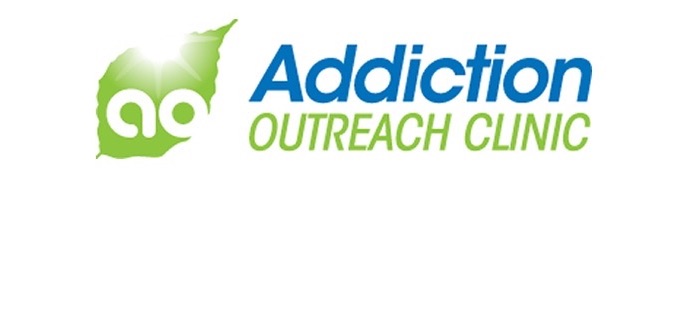Paying for Addiction Treatment
Comparing insurance for opioid addiction treatment and a self-pay addiction treatment program
Battling the opioid epidemic is a complex task, the government, physicians, and even citizens are working together to help curb the epidemic and help those in need.
Opioid addiction treatment programs come in many forms and they all work very differently. There are inpatient centers and outpatient clinics, there are traditional insurance-based programs and self-pay based programs, and each type of treatment may have its benefits or drawbacks.
In this post, we will describe the benefits of a self-pay program and how it can be as beneficial and more convenient than a traditional insurance-based program
Opioid Addiction Treatment with Insurance
A traditional opioid addiction treatment program that is insurance-based may only cost you a co-pay, but the up-front savings are likely not worth the many sacrifices you will need to make to maintain the requirements of one of these treatment programs.
Firstly, this traditional program requires you to actually have insurance, which you may or may not have already, and the insurance also needs to cover addiction treatment. The clinic you choose will also need to accept your insurance, and even after you get your first appointment, it may only be for the clinic to complete an intake process and you may still have to wait more than a week to begin treatment. From the start, you will have to jump through hoops to get into treatment.
The biggest drawback though is not about the insurance but the format and requirements of the traditional opioid addiction treatment program itself. Although addiction treatment will always require dedication – a traditional program requires a time commitment that may not be reasonable to maintain. Traditional treatment can require up to 4 clinic visits per week. This significant time commitment (4 visits per week) makes it very difficult to maintain a job and the relationships of day to day life. Treatment at this intensity is not always necessary, and this may cost someone their job. If someone needs a recovery program at such a high level of intensity, AOC will refer them to that type of treatment program.
“We wish these people in need of addiction treatment knew about our program sooner,” says Dr. Atanasoff, Medical Director of AOC, “Often times we catch patients on their second time around after they’ve tried an insurance-based program and been unable to maintain the program because of the massive time commitment. They always say they wish they knew about us first.” A lot of people in need of addiction treatment don’t realize that a self-pay program is actually very affordable, and significantly easier to manage than a traditional program.
Self Pay Addiction Treatment with No Insurance
Unlike a traditional program, AOC’s self-pay program only requires one visit every 28 days. Within this one clinic visit, a patient can see their Suboxone doctor, get a drug assessment, have a drug screen, get their prescription, and have their behavioral counseling session. This requirement for clinic visits gives patients a chance to keep their job, maintain relationships, and focus on what really matters, life – all while being dedicated to an effective recovery program. Not only does AOC’s self-pay treatment program require less clinic visits it helps patients want to get clean and stay committed to the program, Dr. Nicholas Atanasoff says, “it holds patients more accountable because they feel responsible that they’re paying for the service, they are more likely to take the program seriously and be more committed, even though they are spending much less time in the clinic”.
Having the opportunity to go on with a busy life and be in treatment is the key to recovery for many people. Most people can’t just disappear from all their weekly commitments to go to constant clinic visits, which may not necessarily be essential to an effective treatment program.
Why Do Insurance Based Programs Require Multiple Weekly Visits
In order for insurance based programs to receive their full amount of reimbursement payments, patients must come in for different tests and interactions each week. Insurance companies will pay insurance-based practices for a certain number of urine tests, physician visits, and counseling sessions each/ week or month.
Practices like AOC, that do not accept insurance, do not have to follow the same reimbursement payment requirements that insurance-based practices do. This allows them to offer a treatment program and patient visit schedule which was developed around the patient’s needs and that works best for the patient.
Maintaining Effectiveness with Patient Accountability
With a flexible recovery program comes the need to hold patients accountable during the treatment process. Of course, someone in recovery wants to stay clean and continue treatment but sometimes it is difficult to do this alone, so along with the support of the program comes accountability. To maintain an effective program AOC holds patients to a certain standard to keep them on track in their recovery.
“Our program is effective, we hold patients accountable so they feel like they need to stay clean,” says Dr. Atanasoff. AOC will perform random medication counts and observed urine drug screens to keep patients on track. The patients don’t want to be pushed out of the program because of a relapse, so random checks help to keep patients accountable and the program remains effective.
Effectiveness, Medication-Assisted Treatment (MAT)
One of the most important aspects of the program at AOC is the type of treatment – MAT or medication-assisted treatment. AOC’s MAT program includes Suboxone to curb craving and withdrawal symptoms and behavioral therapy counseling sessions. Read more about AOC’s medication-assisted treatment program here.
Although patients are only required to attend one clinic visit every 28 days, they are welcome to attend as many behavioral therapy counseling sessions as often he/or she would like.
An important component of any MAT program is behavioral therapy. Patients need to learn how to cope with life’s challenges without the effects of a mood-altering substance. To recover from addiction, one must make the decision to recover and to change their behavior. Suboxone will curb cravings and withdrawal symptoms of opioids but true recovery comes from the patient’s desire to recover. Behavioral therapy in counseling provides the essential support patients need to discuss successes and challenges, gain insights on trigger management, and build the necessary skills to maintain recovery and prevent relapse.
To learn more about the opioid addiction treatment program at our Suboxone clinic call us today, you can get scheduled in as little as 24-48 hours: 330-259-4849 .





Leave a Reply
Want to join the discussion?Feel free to contribute!